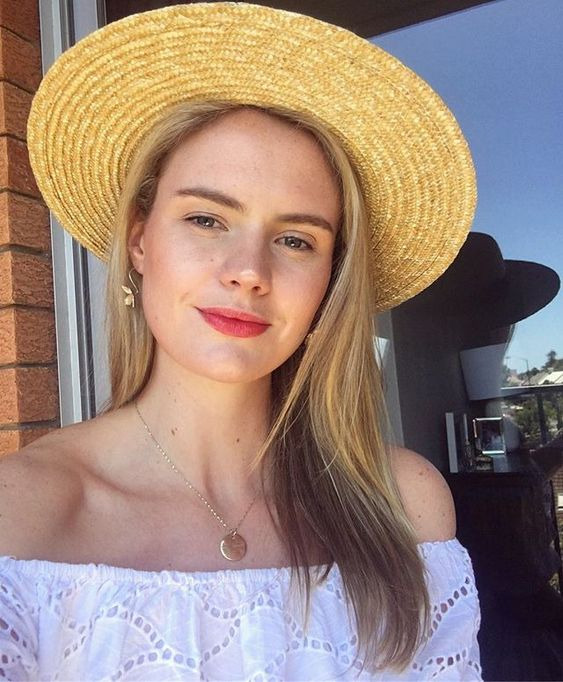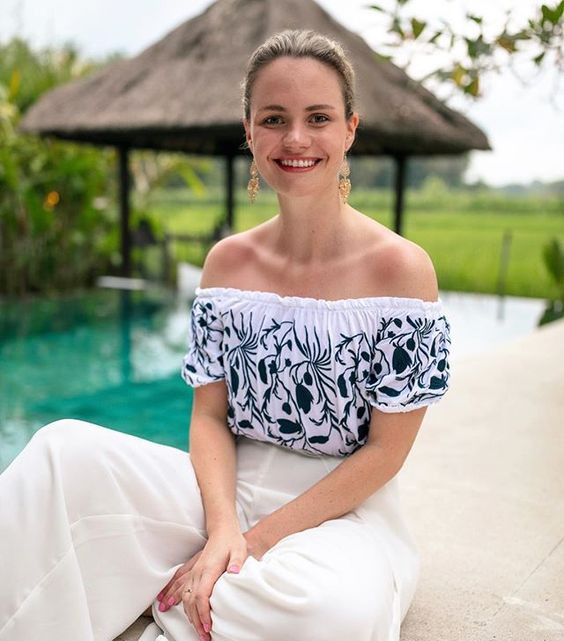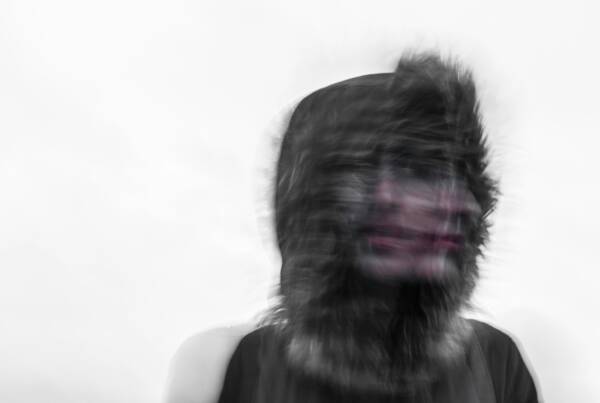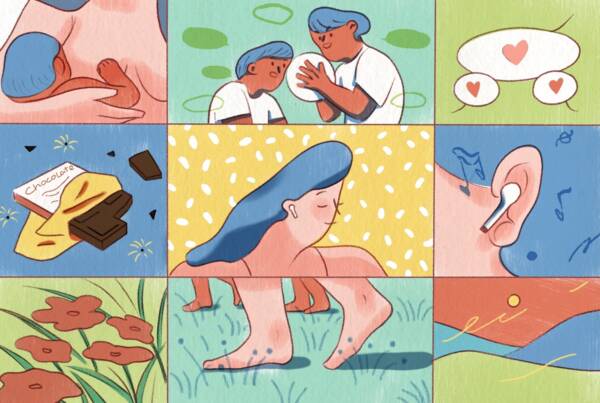Interview of Mia Findlay by Kacey Clark
Interview of Mia Findlay by Kacey Clark
Mia Findlay is an eating disorder recovery coach, content creator, and ambassador for the Australian eating disorder awareness organization The Butterfly Foundation. As someone who struggled with an eating disorder for six years and has now been fully recovered for seven years, Mia uses her platforms to support others through the ups and downs of recovery and let others know that full recovery is possible. Her Youtube channel, What Mia Did Next, in which she offers advice, support, and commentary on all things eating disorder recovery, body image, self care, and mental health, has over 54,000 subscribers and continues to grow. I got a chance to pick her brain about her work, her journey, and how those of us struggling with an eating disorder can get support during the pandemic.
Kacey: Hi Mia! Thank you so much for your collaboration with us. Your videos have personally helped me tremendously in my own eating disorder recovery, so I am thrilled for the opportunity to talk to you about this very important issue. First off, how did you decide to take the first steps to start your YouTube channel and how has that journey been for you?
Mia: Thank you so much, I’m always so happy to hear that my videos can be helpful to people going through this tough process. My YouTube channel was actually a great, big, happy accident. I was about to head off to my first psychologist appointment and was looking for my keys which happened to be under my iPad. I had this moment where I thought it would be interesting to make a video for me to look back on as I went through recovery. Maybe I’d make it a month, or a year and be so proud to look back on day one. It felt really good to talk about what I was going through, so I kept making videos and uploaded them to YouTube because I needed somewhere to store them.
Other people going through recovery started finding them and that’s how our community was born. My recovery, advocacy and career are all thanks in large part to a random split second decision I made, which actually made me late for my first appointment. Worth it though!
Kacey: What inspired you to launch your own coaching business and what kind of work do you do with clients?
Mia: The first time I ever considered becoming a coach was years ago at one of my first speaking events. I was on a panel with a couple of mental health professionals who asked me if I did this professionally. At the time I was working in investment banking and all my advocacy stuff was on the side and obviously unpaid. They really encouraged me to get into the field and when I found out about eating disorder recovery coaching, I knew it was for me.
It’s not a replacement for psychologists or dietitians, it’s a complementary treatment role which comes from a peer approach. I call coaching the action stage of recovery. I help clients deal with their anxieties and goals in real time, whether in session or over text and email between sessions. We cook together, eat together, go clothes shopping together and work on actively changing disordered thought patterns and adopting healthy coping mechanisms. It’s a very practical, hands on approach which has been the missing link in treatment for a long time. And because I’ve been there myself, they know I get it. I would have loved to have a recovery coach to eat pizza with!
Kacey: Backtracking a bit to when you first started your recovery journey, is there anyone/anything in particular who inspired you to pursue recovery? What was that decision like?
Mia: A bit of a suicide trigger warning here, but I think this is really important to talk about. The day I went into recovery, I’d tried to end my life. We actually lose a lot of eating disorder sufferers to suicide, it’s one of the leading causes of death. So many people think this is predominantly a physical illness, but I think the suicide rate reflects how wrong that stigma is. However bad the physical side of my illness was, it was nothing compared to the chaotic hell I’d been living with in my head. I couldn’t do it anymore.
But for some reason during the process of taking my life, and I’m not totally sure why, I started to get angry. Suddenly, I had this absolute clarity of how much I’d lost, what I’d missed out on and all the reasons why I became ill. I got angry, picked up the phone, called my Mum and screamed and cried down the phone for about an hour. Eventually we got to the point where I asked for help, which I was extremely fortunate to be able to access.
Before I knew it I was sitting in front of a doctor, then a psychologist and I was determined not to go back to that hell. I was ready to give up, was standing right on the precipice and whatever shred of a healthy instinct I had left said, ‘No.’
Kacey: What do you think has been the most valuable lesson from your experiences as a content creator, recovery coach, and eating disorder awareness advocate?
Mia: Oh wow, so many I don’t even know where to start. I think for me personally and professionally, it’s that your pain and your past don’t define you. It’s what you do with them that really counts. I had so much shame for so long about my mental health. I remember in the early days, when people I knew in my daily life started finding my social media platforms where I talked about my eating disorder, I would block them! I was so embarrassed. And then it turned into this huge passion of mine and eventually my career, not to mention it connected me to thousands of awesome people. That is not something to be ashamed of. The feedback I’ve had is that people think my vulnerability makes me relatable and brave and a safe place for them. That killed my shame and it’s why I encourage other people to talk about it. Your sickness or trauma or pain is not who you are. You can turn it into something beautiful and purposeful.
Kacey: What is the most challenging part about your work and how do you manage that?
Mia: Life online is pretty challenging. Social media is integral to the work I do but sometimes I wish I could just shut it all down for a while, I don’t think it’s something I’m naturally drawn to. Sometimes it feels like a lot of noise coming at you and the number of Instagram messages I receive asking for help or advice makes me want to bury my phone at times. That’s hard, because I know there aren’t enough resources for eating disorder sufferers but I get way too overwhelmed if I pressure myself into getting back to everyone and then I feel guilty. These messages aren’t just like ‘Cute top, where did you get it?’, they’re detailing abuse, trauma and behaviours. Unfortunately the more people your platform reaches, the less you can interact individually and that sucks.
The coaching side doesn’t present many challenges I can think of. I’m often asked if being a coach is challenging because it can be very intense and heavy, which it is. But I don’t find that difficult. I love talking to people, looking at the blueprint of their challenges and then finding a way out together. I think it would be more challenging if I didn’t have very strong boundaries and self care practices. Plus my training with the Carolyn Costin Institute equipped me with a wealth of tools to make sure I don’t burn out.
Kacey: I always like to ask those that I interview about their self care practices, because I find it interesting how self care is so individualized for each person. Especially with your work, which requires a lot of emotional labor and difficult conversations, how do you practice self care?
Mia: Phone off, emails muted, pyjamas on, bra off, a Buffy the Vampire Slayer marathon and my cat Lola curled up next to me is all I need for a self care day and I do this a lot.
Individual steps I take are things like deleting all my social media apps when I get into bed so I’m not tempted to check them if I wake up in the night and can’t check them first thing in the morning.
I genuinely practice mindfulness daily, which Mia from 10 years ago would think is hilarious, but the research is in folks and it works.
I try to go for at least a 10 minute stroll most days and sit by the beach listening to a podcast. I find music really overstimulating if I’m stressed.
And I have very intentional conversations with myself like I’m my own parent, ‘It’s okay, you can handle this, the most important thing to do is take care of yourself.’ That’s the best self care practice you can master – making the world in your head kinder.
Kacey: The pandemic is sparking a lot of anxiety for everyone, but especially for those with an active eating disorder or in recovery, this time can be particularly triggering. Do you have any advice or support resources for someone who is currently struggling with their relationships with food and body image in light of the pandemic?
Mia: This is such a surreal and strange time for everyone and I know how challenging it’s been for people in recovery. Connection is particularly important during quarantine and especially during recovery. Stay in regular contact with loved ones who are supportive, schedule calls with friends, join lives on Instagram and chat to people in the comments. There are so many ways to feel like you’re a part of something right now and I think that’s very important. If you’re looking for a safe trigger free and moderated space, I have a forum at https://whatmiadidnext.discussion.community/ which is full of very supportive and empathetic people encouraging each other through recovery.
If you are in treatment, I know that seeing your treatment team over Zoom or Skype might be off putting, but it’s so important to continue your sessions. And you can wear your pyjamas, light a candle and there’s no getting stuck in traffic!
I also have been encouraging my community to manage their expectations – if all you can manage right now is protecting your recovery and not smashing through challenges, that is totally fine. If you need to maintain and manage where you are in your process for now, without slipping back, that is absolutely okay to do.
The one resource I will always recommend if you’re looking for extra recovery skills and tools, is the 8 Keys to Recovery from an Eating Disorder book (there is also a workbook) by Carolyn Costin and Gwen Schubert Grabb. This is a resource I work through with clients, but you can also work though it on your own. It’s amazing.
Kacey: Where can readers follow you and keep up with your content?
MIa: The best places to find me are at my YouTube channel What Mia Did Next https://www.youtube.com/whatmiadidnext, on Instagram at What Mia Did Next and at my coaching website.
Kacey: Lastly, to end on a lighter note, I want to ask some quick-fire questions!: crunchy or creamy? Robe or blanket? Early bird or night owl? Candles or essential oils? Tacos or nachos?
MIa: Crunchy, robe, early bird, candles, tacos.
Kacey: Thanks again for taking the time to open up with the Ramona community and thank you for all that you do every day to support those in recovery. Take care of yourself!
Mia: Thank you so much for having me – stay safe and stay kind everyone!










